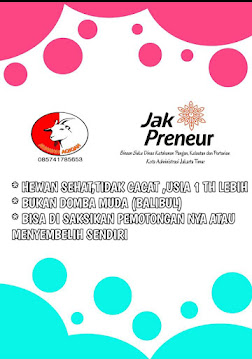Misool Eco Resort and Shark Savers announced that a Shark Sanctuary has been declared for the entire 17,760 square miles of Raja Ampat, Indonesia. Bupati Drs Marcus Wanma, the Regent of Raja Ampat, made this historic declaration, demonstrating leadership in marine conservation.
The Raja Ampat Shark Sanctuary provides full protection for sharks, manta rays, mobulas, dugongs, and turtles. Also prohibited are highly destructive practices including reef bombing and the aquarium fish trade. The Shark Sanctuary is the first of its kind in Indonesia, the largest island archipelago in the world.
The Shark Sanctuary declaration is in direct response to a campaign mounted by Shark Savers, an international shark conservation organization, in partnership with Misool Eco Resort (MER). The campaign won the support of over 8,500 divers and conservationists, with hundreds of tourism and diving companies and NGOs from around the world.
"This new Shark Sanctuary owes its creation to thousands of ocean advocates who expressed the urgent need to protect sharks, mantas, and other marine life," stated Michael Skoletsky, Executive Director of Shark Savers. "Divers experience the oceans from the inside and are increasingly taking responsibility for ocean and shark conservation. Underwater ecotourism is a vital tool to counter the rampant exploitation of the world's remaining sharks and bio-rich marine ecosystems."
The Raja Ampat Shark Sanctuary is expected to attract additional underwater eco-tourism, which will bring economic benefit to Raja Ampat's people while offsetting the cost to enforce the new wildlife protections. Shark Savers will play an ongoing role to mobilize continued support of divers and conservationists to fund long-term enforcement in the Shark Sanctuary.
The new Shark Sanctuary builds upon previous conservation achievements that protect vital coral reef and mangrove habitats. Conservation International (CI) and The Nature Conservancy (TNC) worked with the Raja Ampat government to create seven Marine Protected Areas (MPAs) in 2007, which CI and TNC maintain and enforce.
In 2005, Misool Eco Resort (MER) created the 164 sq mi Misool Marine Conservation Area (MCA) to protect sharks as well as reefs, in partnership with local Misool villages, WildAid and Coral Reef Alliance. Today, MER also announced the expansion of its MCA to 468 square miles and the Daram islands. All of these MPAs and the MCA lie within the Shark Sanctuary.
"Our MCA is constantly patrolled with the help of grants from WildAid and Coral Reef Alliance, enabling shark numbers to increase dramatically," said Andrew Miners of MER. "To achieve similar success, the new Shark Sanctuary will require a broad coalition of these great conservation organizations - CI, TNC, CORAL, WildAid, and Shark Savers - together with local communities, the Regency government, and the tourism industry."
Raja Ampat enjoys the highest marine biodiversity level on the planet with 1397 species of fish and over 600 species of coral recorded. It has also been the scene of destructive overfishing that has severely threatened sharks, mantas, and other vulnerable species.
Sharks, as apex predators, play a vital role in regulating the health of important commercial fish species, population balance, and coral reefs. Despite this importance, up to 73 million sharks are killed annually with some shark populations declining by as much as 90%, mostly for shark fin soup. In Raja Ampat, three fourths of its shark species are threatened with local extinction.
"Sharks are being killed for their fins, mantas are being killed for their gills, and rare reef fish are being caught for aquariums", said Peter Knights, Executive Director of WildAid. "It's tragic that so much of Raja Ampat's biological treasure is destined for consumers who are unaware of the impact." WildAid and Shark Savers also work together on media campaigns to curb the consumption of shark fin soup. The organizations believe in addressing both the demand and supply sides of the problem in order to stop the eradication of sharks. [press-release]

















2 Komentar
good news.
BalasHapusmari kita selamatkan lingkungan kita, kekayaan alam kita, malu sama MER dan Sharksavers, mereka orang asing saja mau menjaganya.
salut...!
BalasHapusselamat ya atas kerjasama yang terjalin antara dinas kelautan dan perikanan irjabar dengan MER dan Sharksaver.